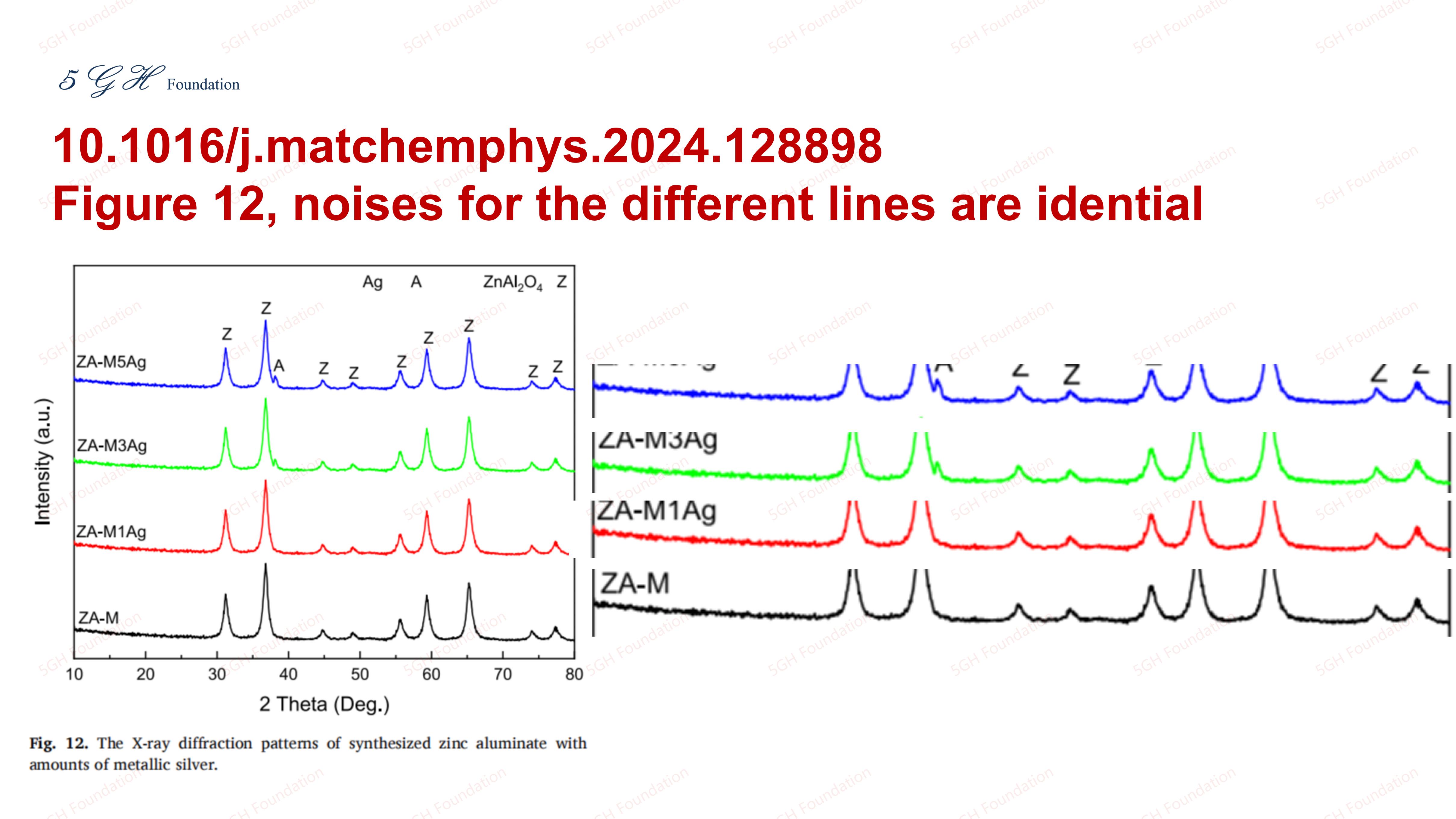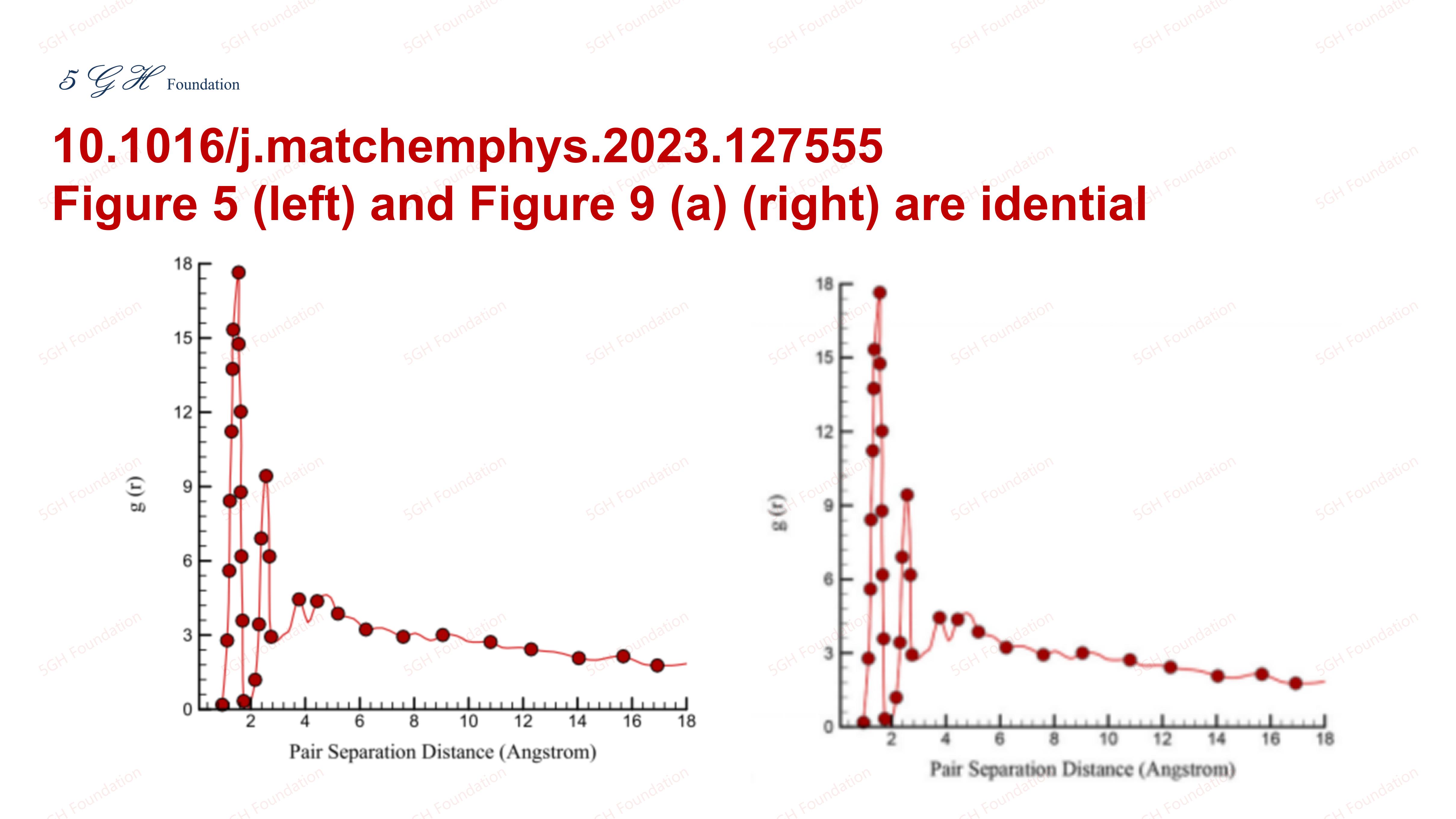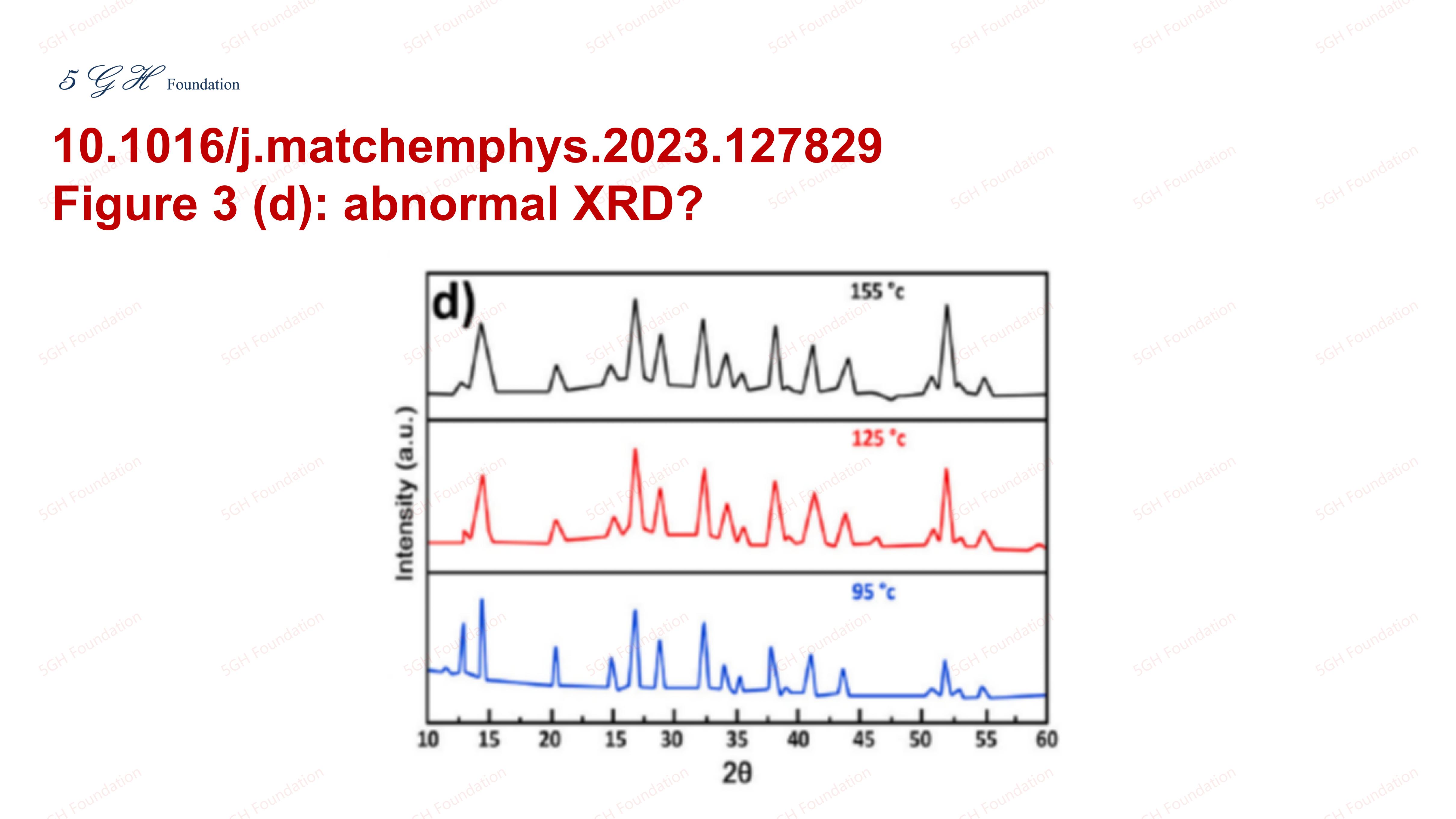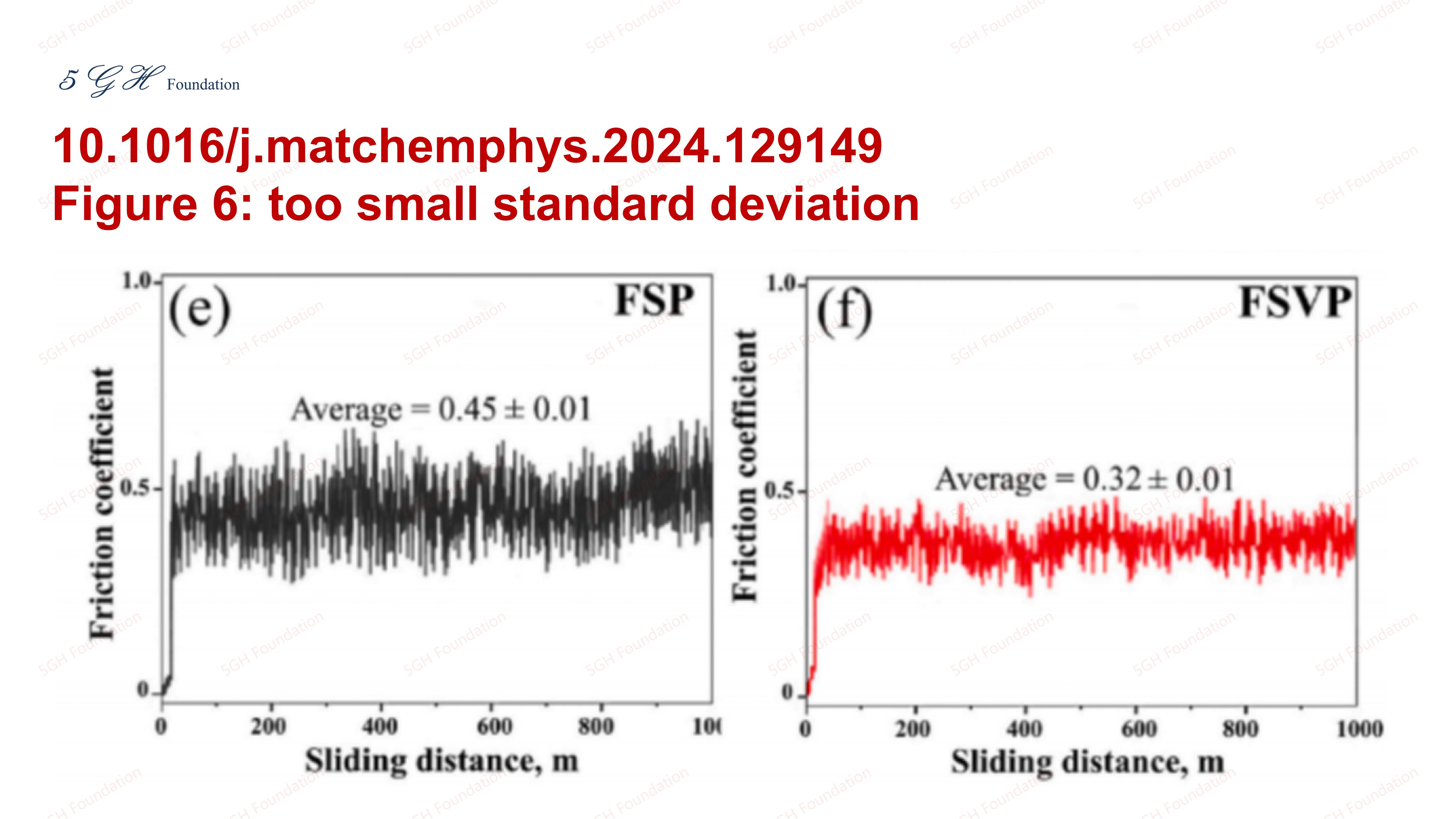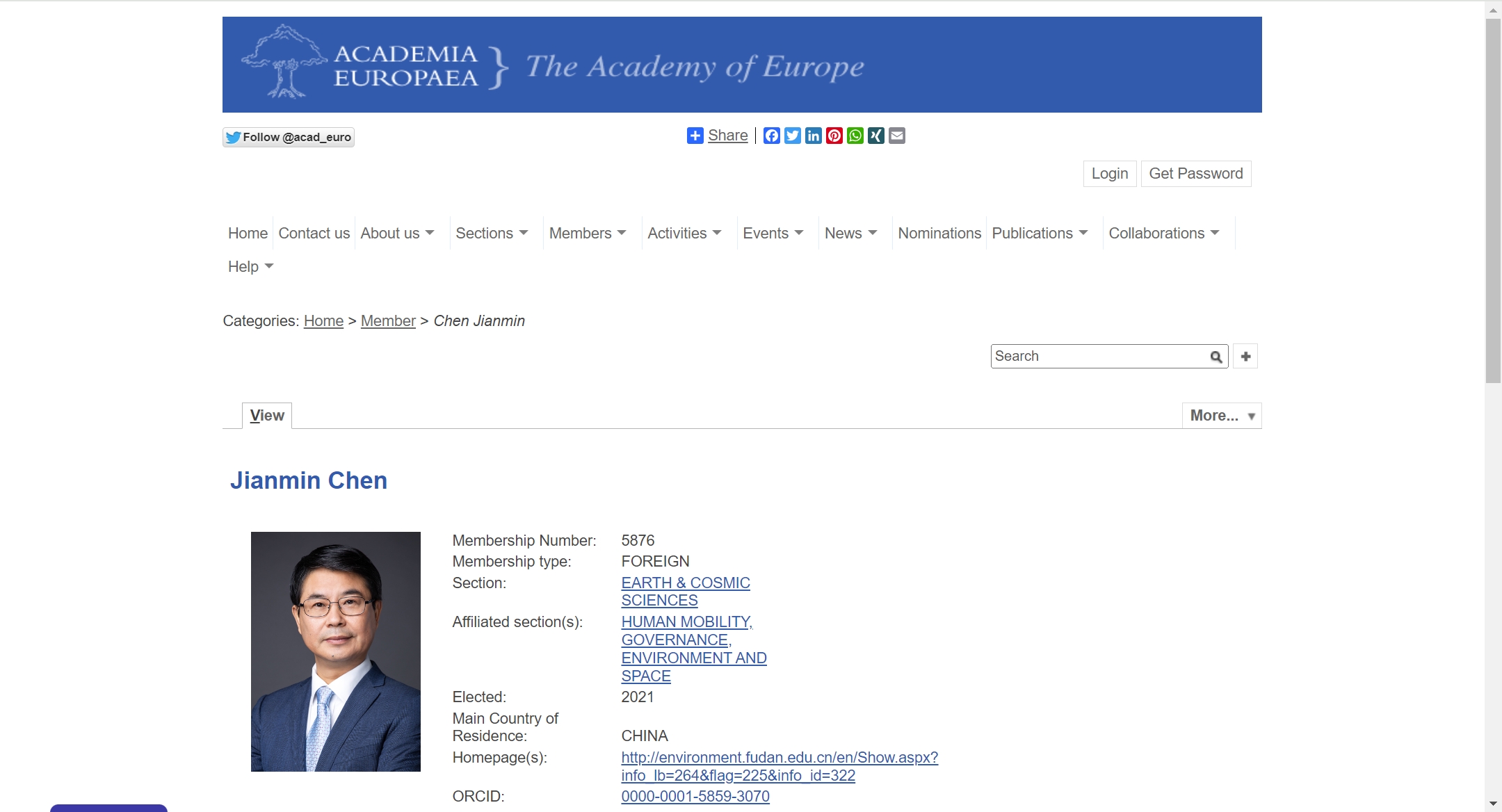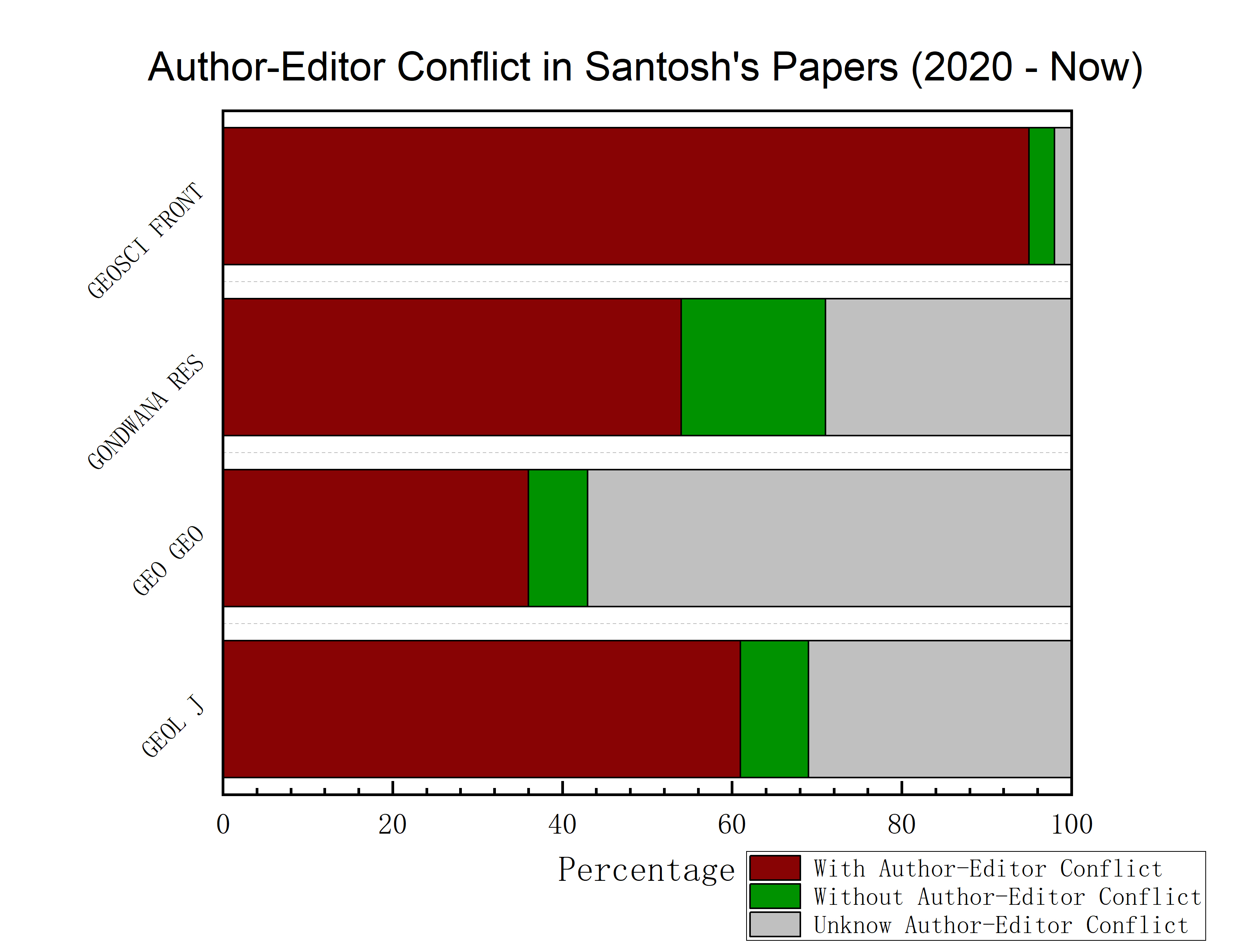40% Articles Co-authored by Chinese and Iranian Researchers Are Unreliable
A current investigation by the 5GH team reveals that on the journal "Material Chemistry and Physics", 40% articles with coauthors from China and Iran have unreliable data issues. The team investigated 34 papers obtained on October 3rd, 2024, using a searching strategy of "Journal or Book Title: Materials Chemistry and Physics, Author Affiliation: China and Iran" on ScienceDirect website, and discovered the above-mentioned outcomes.
Concerns raised about these papers are following:
Manipulated Data/Charts
In the X-ray diffraction (XRD) patterns of Figure 12, paper [1], same noise patterns were observed on multiple lines, indicating that these patterns are the result of manipulations. In addition, there are many abnormalities in the infrared spectrum (Figure 4) of paper [2], including but not limited to "noise-free regions" as well as "non-uniform thickness", indicating manipulations to the lines. The two lines in the upper part of Figure 2, paper [3], have identical parts (including noise), which are also likely to be the result of manipulation. One of the XRD patterns (Figure 2(b)) on paper [4] has “bowed-over” region, suggesting it may be manipulated. Totally 4 papers have “Manipulated Data/Charts” issues.
Reuse of Data/Charts
Figures 5 and 9 (a) in paper [5] are derived from the same data, but are described as the measurement results of two different samples. Figures 13 and 14 in paper [6] have the same data, but are described as the results of two different tests. These coincidences all indicate the possibility of "data reuse". Although we can not rule out that it may be due to poor data management rather than intentional misconducts, the poor laboratory management and improper peer review practice are indeed worrying. Totally 2 papers have “Reuse of Data/Charts” issues.
Fabricated Data/Charts
In the XRD (Figure 3) patterns of the paper [7], all diffraction peaks are "triangle-lile" and the background consists of straight lines. These are not normal XRD results and are most likely fabricated. Totally 1 paper has “Fabricated Data/Charts” issue.
Abnormal Standard Deviations
Regarding to papers [1-2] and [8-11], same standard deviations and/or same length error bars are often observed on their figures and/or tables. That all data points in the whole plot or every data in the table have same standard deviations/error bars is impossible in real measurements, and this is likely because these standard deviations are fabricated. In addition, the standard deviations in Figure 6, paper [12], can not be verified with the lines shown on the figures, indicating that they are fabricated. The "water" columns in Tables 1 and Table 2, paper [13], have the same values respectively, which is likely fabricated. The standard deviation of Table 1, paper [14] is too small. Totally 9 have “Abnormal Standard Deviations” issues.
There are 14 papers have at least one above-mentioned issue, accounting for 41% (14/34) of the total papers investigated. In addition, the authorship of most articles are very suspicious, including but not limited to only one author from China (or Iran), a small research involving researchers from multiple countries (usually including Saudi Arabia, India, South Africa, Turkey, etc.), etc., which may be related to the authorship-for-sale issue.
The above results show that the papers co-authored by Chinese and Iranian researchers need to be treated with cautions. It also shows that the journal "Material Chemistry and Physics" may be targeted by the paper mills.
Reference
[1] 10.1016/j.matchemphys.2024.128898
[2] 10.1016/j.matchemphys.2022.125770
[3] 10.1016/j.matchemphys.2021.124720
[4] 10.1016/j.matchemphys.2024.129428
[5] 10.1016/j.matchemphys.2023.127555
[6] 10.1016/j.matchemphys.2023.128465
[7] 10.1016/j.matchemphys.2023.127829
[8] 10.1016/j.matchemphys.2023.127855
[9] 10.1016/j.matchemphys.2022.127157
[10] 10.1016/j.matchemphys.2019.122233
[11] 10.1016/j.matchemphys.2020.122838
[12] 10.1016/j.matchemphys.2024.129149
[13] 10.1016/j.matchemphys.2011.04.083
[14] 10.1016/j.matchemphys.2024.129876

